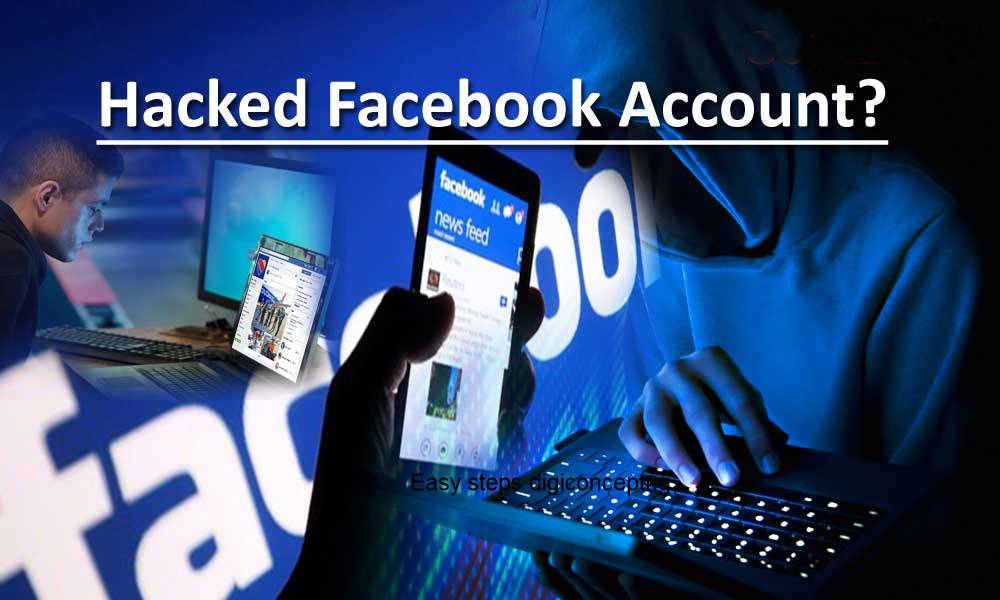Facebook remains the world’s largest social media platform, which also makes it a major target for hackers. If your account has been compromised, quick action is the key to regaining access before the attacker changes critical details.
This guide explains how to recover a hacked Facebook account, common hacking methods you should know about, and how to secure your account from future attacks.

How Hackers Gain Access to Facebook Accounts
Understanding how accounts are hacked helps you stay protected. Here are the most common methods:
1. Phishing
Hackers create fake login pages or send emails that look like Facebook. Once you enter your details, they capture your credentials. One common tactic hackers use is creating fake links or login pages that look legitimate. Once you click on these links, often shared through suspicious emails, they trick you into entering your login details.
Get TikTok SEO Cheat here
The moment you type in your email and password, the hacker captures that information and gains access to your account. To stay safe, always verify the source before clicking on any link, especially if you don’t recognize or trust the sender.
2. Keylogging
Malicious software records keystrokes on infected devices, capturing your usernames and passwords. A major security risk online comes from unsafe or suspicious websites, particularly adult sites. Many hackers hide malware on these platforms, often using keylogger programs to secretly track everything you type on your device.
This can expose sensitive information such as your passwords, banking details, and other private data. In some cases, attackers may even attempt to activate your device’s camera to spy on you. Once collected, this stolen information is usually sent through hidden transfer protocols or emails. Keylogger attacks are dangerous because they can quickly escalate into identity theft and serious privacy breaches.
3. Saved Passwords
If your device or browser is compromised, saved passwords can be stolen. Using incognito mode and a secure password manager reduces this risk.
When browsing online, avoid saving or storing your passwords directly on websites or browsers. While it may seem convenient, it can also make your information vulnerable if your device or password manager is hacked. A safer alternative is to use your browser’s incognito or private mode, which doesn’t store your browsing history, cookies, or login details. This reduces the chances of sensitive data being saved and later exposed to cybercriminals. Remember, keeping your passwords secure is one of the simplest ways to protect your online accounts.
4. Session Hijacking (Sidejacking)
On unsecured public Wi-Fi, attackers can intercept your browsing session and gain access to your account. I will advise you to read how to shop safely online.
For anyone who shops or browses online, it’s important to learn the basics of safe online shopping. One major risk to watch out for is browsing on public Wi-Fi networks. Hackers often launch what’s called a sidejacking attack (also known as session hijacking). In this type of attack, they intercept your browsing session and steal cookies from your device. With these stolen cookies, a hacker can impersonate you online, gaining access to your personal accounts and sensitive details. To stay safe, avoid logging into important accounts on unsecured public networks, or use a trusted VPN to protect your session.
5. Social Engineering
Fraudsters trick users into revealing security codes or personal details, often by pretending to be Facebook or offering rewards.
Another common trick hackers use to compromise accounts is through phone scams. I’ll share a simple example I’ve seen happen to real people who asked me for help. The scam usually starts with a call or message offering you something enticing, like free airtime or cash. They will then ask you to share a code that arrives on your phone. What many don’t realize is that this “code” is actually your Facebook security code or verification code. Once you give it out, the scammer can instantly gain access to your account. Remember, anything that sounds too good to be true usually is. Be careful of free offers that put your security at risk.
How to Recover a Hacked Facebook Account
Facebook provides multiple ways to regain control. The method that works best depends on what information the hacker has changed.
1. If Only the Password Has Been Changed
- Go to the Facebook login page and click Forgotten password?
- Enter your registered email, phone number, or username.
- Select your account and request a verification code via email or SMS.
- Enter the code, create a new password, and log in.
2. If You No Longer Have Access to Your Email
- Start with Forgotten password? and search for your profile.
- Click No longer have access to these?
- Use recovery options such as:
- Trusted contacts: Facebook allows you to send recovery links to friends you’ve designated.
- Security questions (for older accounts).
- Follow the prompts to reset your login details.
3. If Both Email and Password Have Been Changed
- Try logging in with your phone number linked to the account.
- If the hacker changed your email, check your old email inbox for a notification from Facebook about the change. Use the “If you didn’t make this change, secure your account” link to reverse it.
- You may be asked to confirm your identity with a government-issued ID or by identifying your Facebook friends.
4. Identity Verification (Latest Method)
If standard recovery steps don’t work, use Facebook’s identity verification form:
- Visit Facebook Identity Verification Page
- Upload a clear photo of your government-issued ID.
- Submit the form and wait 1–3 business days for Facebook’s response.

How to Prevent Your Facebook Account from Being Hacked
Recovering a hacked account can be stressful, so prevention is critical. Here are key tips:
- Enable Two-Factor Authentication (2FA): Add an extra layer of security with SMS codes or authenticator apps.
- Avoid Suspicious Links: Don’t click on links from unknown emails or messages.
- Use Strong, Unique Passwords: Combine letters, numbers, and symbols. Avoid reusing passwords across sites.
- Log Out from Shared Devices: Especially on public computers or devices that are not yours.
- Review Active Sessions: In Facebook settings, you can see devices where your account is logged in and log out remotely.
Read also:
- 4 Reasons Why Ads Are Not Showing on the Website
- USSD Code for Loans in Nigeria
- How To Block All Bank ATM Cards In Nigeria If Stolen/Lost With Code
Final thoughts
If your Facebook account has been hacked, act quickly using the recovery options available. In most cases, you can regain access through your email, phone number, or identity verification.
To avoid future issues, set up two-factor authentication, avoid suspicious links, and monitor your account regularly.
If you still face difficulties, you can report your compromised account directly via Report Hacked Facebook Account.
Trust this article has been helpful? Why not share to encourage others to know about how helpful this article can be to them when or if they face a similar problem.